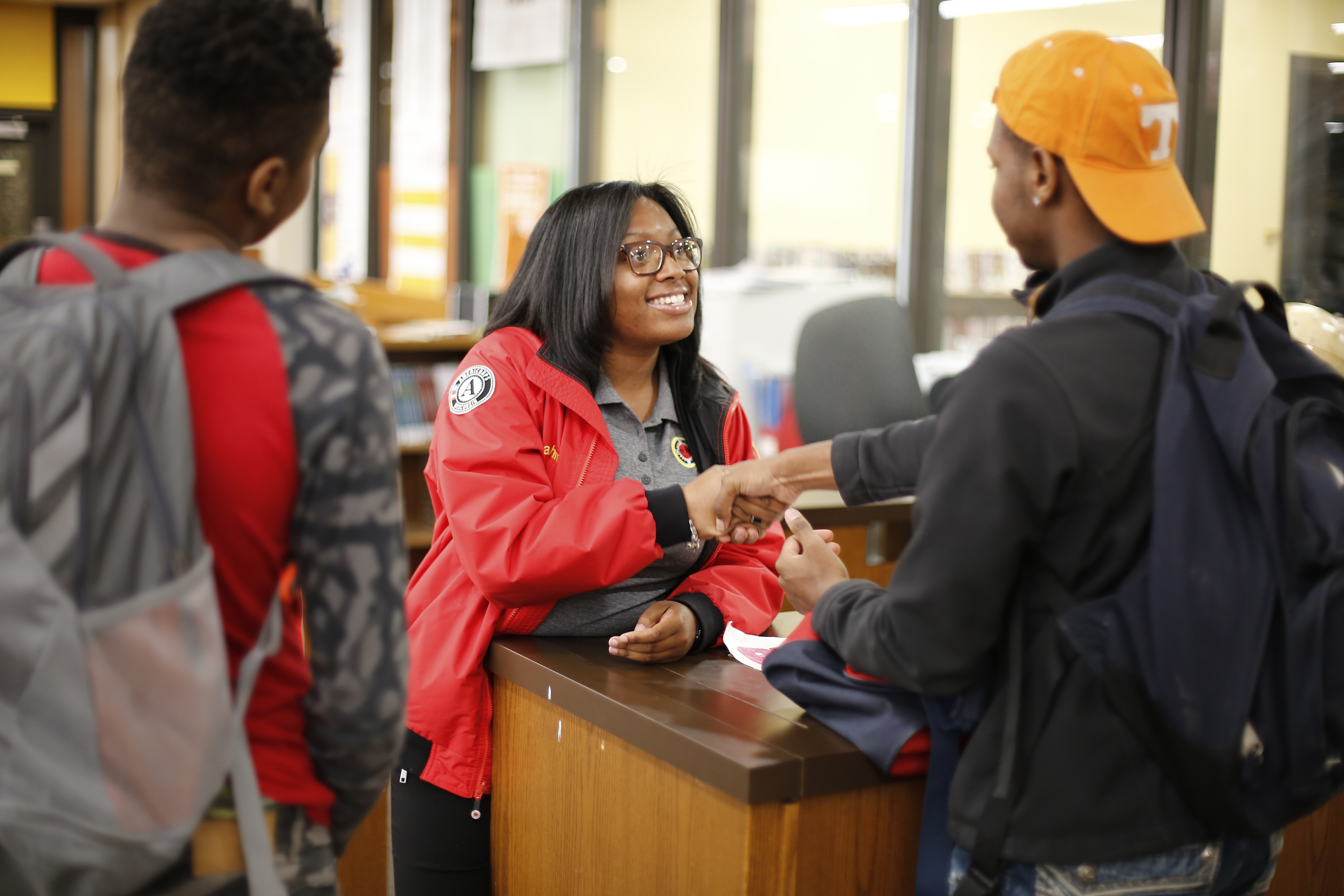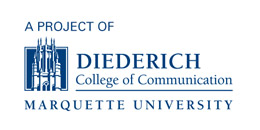
(Photo provided by City Year Milwaukee)
Editor’s note: Have something on your mind? “Community Voices” is the place to let Milwaukee hear what you have to say. To be considered, we need your name, email address and phone number for verification. Please email your submissions to info@milwaukeenns.org.
 Meralis Hood is the executive director of City Year Milwaukee, an education-based nonprofit that places AmeriCorps members in Milwaukee schools.
Meralis Hood is the executive director of City Year Milwaukee, an education-based nonprofit that places AmeriCorps members in Milwaukee schools.
When our students return to school this fall, it won’t be “business as usual” for them—or for any of us. Despite the heroic efforts by Milwaukee Public Schools’ educators to adapt and support remote learning during the conclusion of the spring semester, students and schools will need additional supports to rebound from the academic and social emotional impacts of COVID-19.

This is particularly true for the students who are absent from online learning, despite efforts to provide technological access and learning opportunities to all students. Experts are predicting that students who are not receiving effective distance learning could be a year behind when they return.
Student success—particularly during this disruptive moment in schooling—requires not only access to quality academic content but also strategies to engage students in their learning. Teachers, of course, are critical in all of these efforts.
As our schools continue to navigate the pandemic, we know that all our young people will need caring adult relationships in schools to help students reconnect with their school community, re-engage in their learning and recover from learning loss.
At City Year, we already partner with schools to provide additional near-peer adults who can support teachers and establish relationships with students.
The good news: We know more today about how to support holistic student success than ever before. A new study by the Everyone Graduates Center at Johns Hopkins University tells us that in order for students to learn and achieve, we need to focus on both academic content and on building their social and emotional skills, such as persisting through challenges and understanding their own strengths and growth areas. The study found that making gains in social-emotional skills is similar to, or can be the same, as gaining an entire school year of academic growth.
This study aligns with a growing evidence base and what we see every day when our City Year AmeriCorps members work alongside educators as student success coaches in Milwaukee Public Schools: Learning happens through relationships.
When our AmeriCorps members support students to help them master fractions, we also are helping them learn how to solve problems, work in teams and bounce back after setbacks. As we know from our own experience serving in schools, these are the skills that are essential to success in school and in life—and they will be even more relevant for students as they navigate our new “normal.”
A new study explores the relationship between social-emotional development and academic outcomes for students.
The study analyzed the impact of City Year AmeriCorps members who tutored and mentored thousands of students in 326 public schools across 28 U.S. cities—including here in Milwaukee. In addition to the statistically significant, consistent relationships between student social-emotional skills and academic outcomes, the study also found that spending more time with City Year AmeriCorps members is tied to significant academic gains, better attendance and stronger social-emotional skills such as self-management, decision-making and relationship-building, which support their long-term success.
As schools and districts prepare to bring students back to school in some form over the next months, we need to think creatively about how we catch students up academically and also support their social and emotional well-being.
This evidence strengthens the argument for why social-emotional skill building must be an essential part of K-12 education. Based on our experience partnering with schools and communities across the country, City Year has released a guide for practitioners and policymakers that highlights tools, practices and recommendations for integrating social, emotional and academic approaches to support improved student and school outcomes.
The recovery process from COVID-19 offers us a unique opportunity to refocus our efforts and invest our resources in the success of the next generation of leaders and innovators in Milwaukee. The future of our students, and our community, depend on it.






Leave a Reply